In 1880, the great composer Alexander Porfiryevich Borodin wrote a tone poem dedicated to his friend and fellow composer Franz Liszt. The piece had been formally commissioned by Russian Emperor Alexander II to celebrate his Silver Jubilee.
At that time, there was a small, dedicated group of composers determined to write music that wasn’t some rework of existing Western European material. That music, of course, was magnificent in its own right. But Borodin, a chemist by training, instead looked to inspiration from his own country.
Which at that time was vast, unpeopled, lonely and windswept. Much like it is today, although borders and rulers have changed many times over.
Emperors may come and go, wars fought, list, won, languages change, adapt, merge. Races melt into one another. Religions rise, fall, disappear.
The steppes remain.
Borodin’s tone poem, which was nearly lost to history because of an aborted assassination attempt against the Emperor, was later resurrected by fellow composer Nikolai Rimsky-Korsakov.
Those of us lucky enough to have been brought up in a classical music- loving household (and I am one of them, despite having been raised on a chicken farm in Central Florida) might have been introduced to this concert hall favorite.
For my part, having grown up with a tangle of palm trees, thickets of dense brush and citrus groves for miles around, it would have been impossible for me to imagine the stark, endlessly empty steppes scented by sage and dotted in all directions with the fleet-footed Saiga antelope that can almost outrun a cheetah.
It’s hard to visualize unless you are in a car, hurtling along at speed, while a herd of some forty Saiga are outrunning you.
Unforgettable.
An autumn sunrise on the Gobi steppes, an area which prior to 1946 was still considered a state of the USSR, takes over nearly three-quarters of the horizon. The windswept land lies flat in every direction, the tallest structures are the dried scat of wolves, camels, horses, sheep and goats.
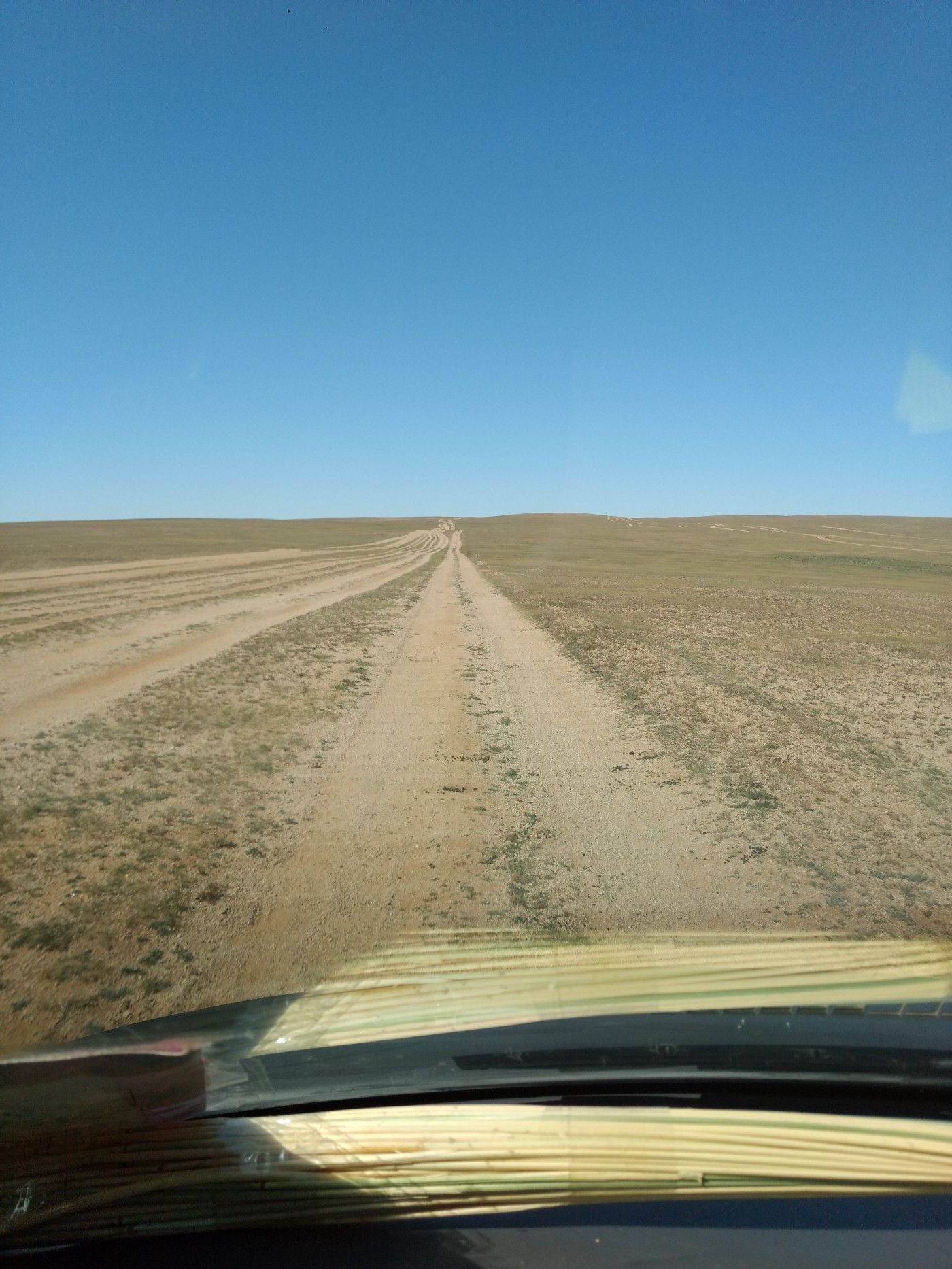
At least, this far off the maze of up to twenty dirt tracks that qualify as roads out here. People really do just make their own. This is the Wild Wild East in many ways.
Every so often you pass a structure made of boardwood. This is impossibly expensive, for trees are thousands of miles away and the wood has to be shipped in. The corral, which is this time of year cracked and compacted by millions of steps, is just about ready for harvesting. The animals tread on their own shit, it hardens in the harsh summer sun, and is eventually left to dry out. Cracks form, and the farmer lifts the dried sections-a near-perfect form of cooking fuel and heat- into a pile for the winter.
No trees out here to burn.
Here, of course, in some areas, are towers carrying modern power and signal to a few outposts.
There were none near us where we slept.
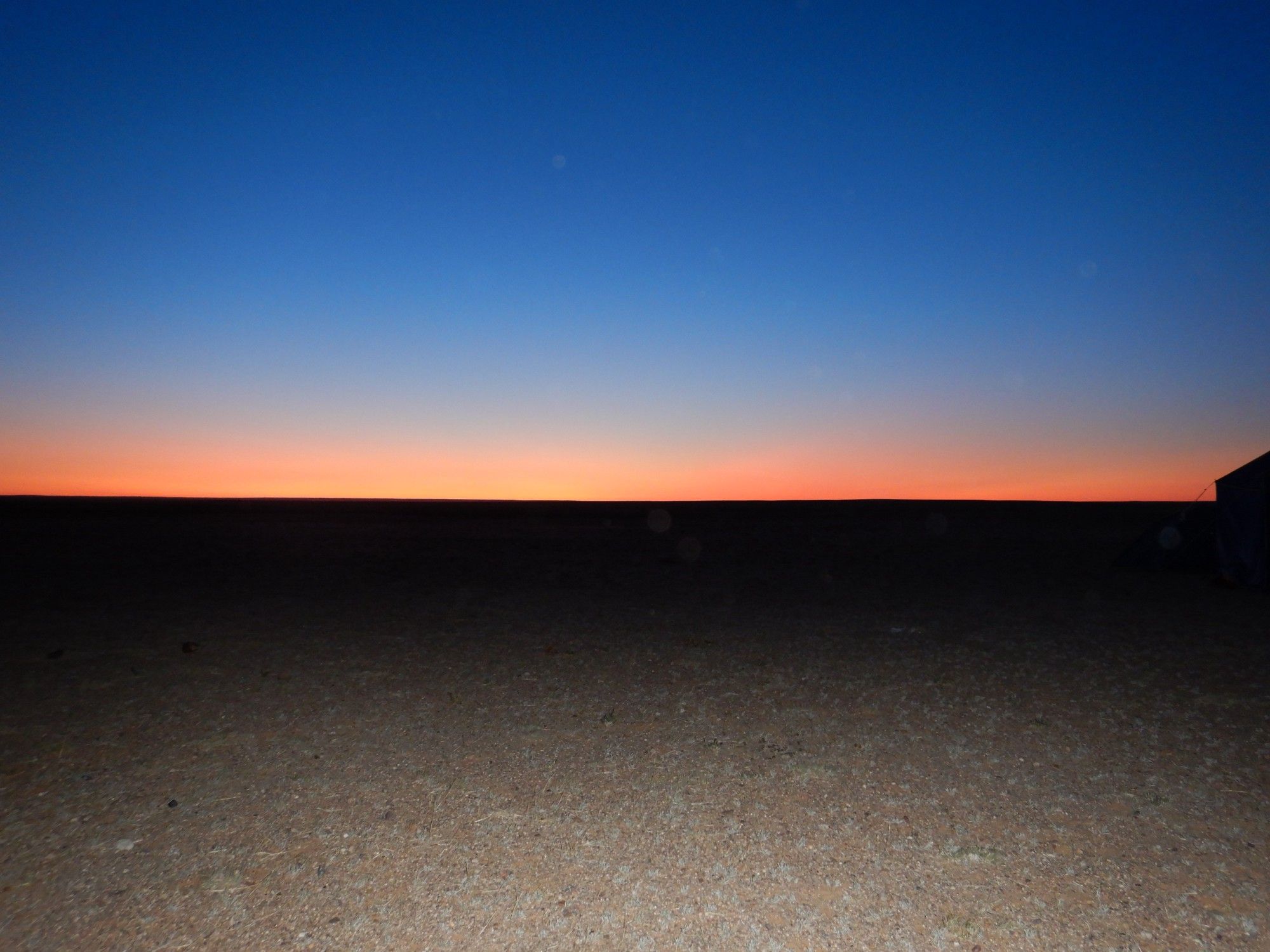
Open your tent fly to enjoy the spectacle, and the purple-pinks of earliest dawn, swept in by the last of the night’s cold, begin to push away the fading stars. As we have a waning moon, Orion is about the only constellation bright enough to discern with the September moon still nearly full. Leave your face or hands outside the tent one minute too long, like I did, and they are numbed. It takes a while to warm up out here in fall.
In some parts of Mongolia it can get down to -50 degrees. Wind. It does that.
My guide’s bright blue cook tent flaps noisily. She’s still asleep. The driver, dead to the world, is curled up in the van’s back seat.
For now the steppes are mine.
Or as much “mine” as possible. My life out here is a brief match, as insignificant as the grains of sand that support my body. My very temporary body. The sands here are eternal. I am not.
In this part of the Gobi, the only plants are very low to the ground. In the dawn you can find plenty of insect life, and in all directions are the Hobbit- like circular openings for the resident mice. Mongolia is home to a wide variety of rodent species, including one mountain-dwelling mouse so big I was convinced it was a rabbit ( but with tiny ears).
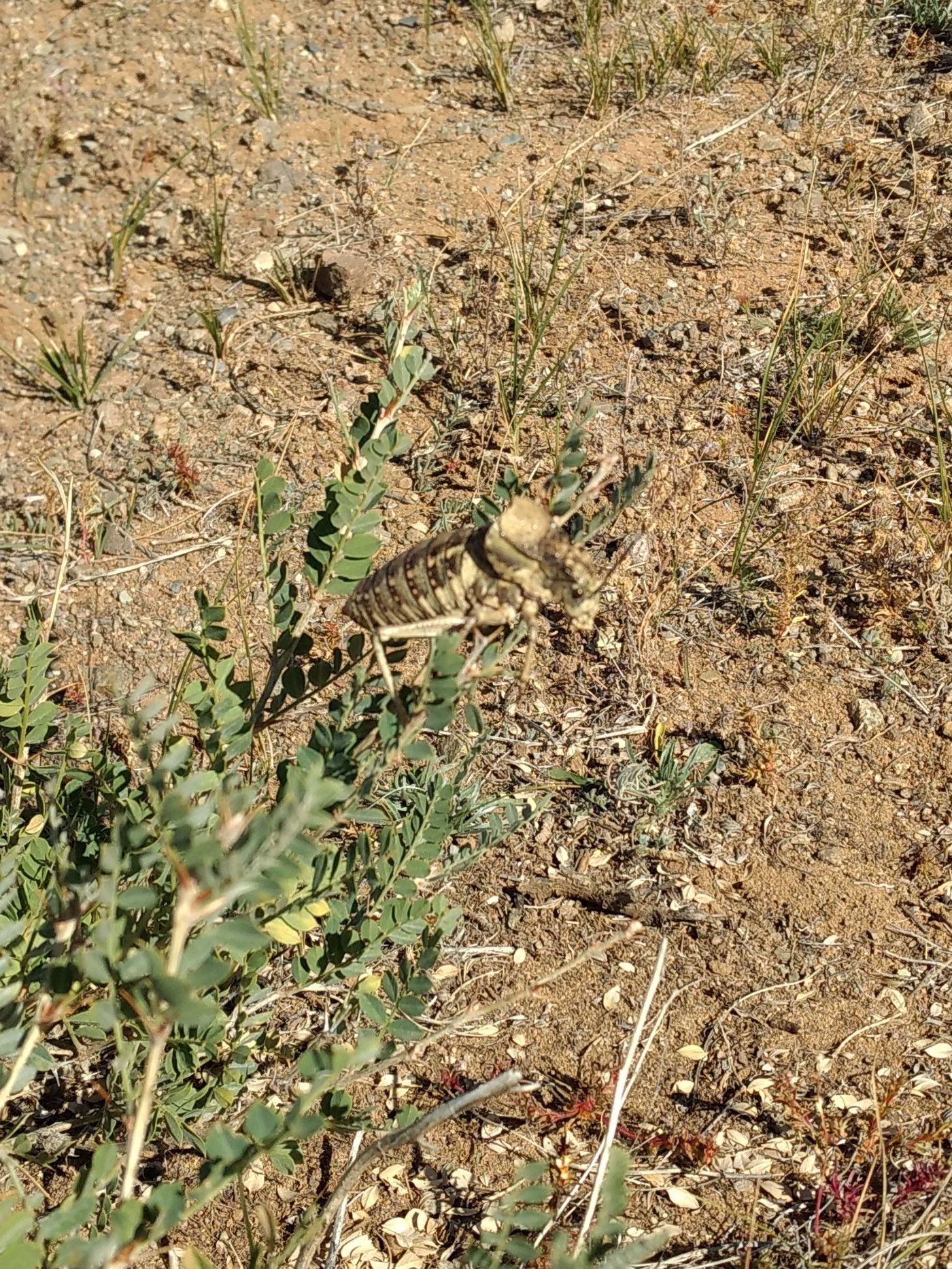
The desert is alive, very much so; just barren to an eye accustomed to cities and suburbia. The perfectly- disguised grasshoppers (male, above, carapace lifted in song) blend in so perfectly that it takes great patience to find them .
The deep royal of the retreating night sky slowly gives way, but the wind doesn’t. Borodin’s work came to mind as I stood next to my tent, listening to the wind whistling through my hood. The enormity of the space, the vastness.
This is a fine place to be if your overstuffed ego needs to be recalibrated. While in truth we are largely nothing anywhere, the sheer scope of the landscape tends to bring home the twin points that not only are we immensely small, we are terribly, terribly brief.
Or, this is perfect if you badly need a reminder of what silence feels like. Looks like. Sounds like.
Many people today have no idea, having never experienced true silence. Like people who are forever telling me that I don’t know what I am missing because I won’t drink their booze ( thanks, yes I do, two badly-stunted and now-dead family members) I might argue that silence is the same.
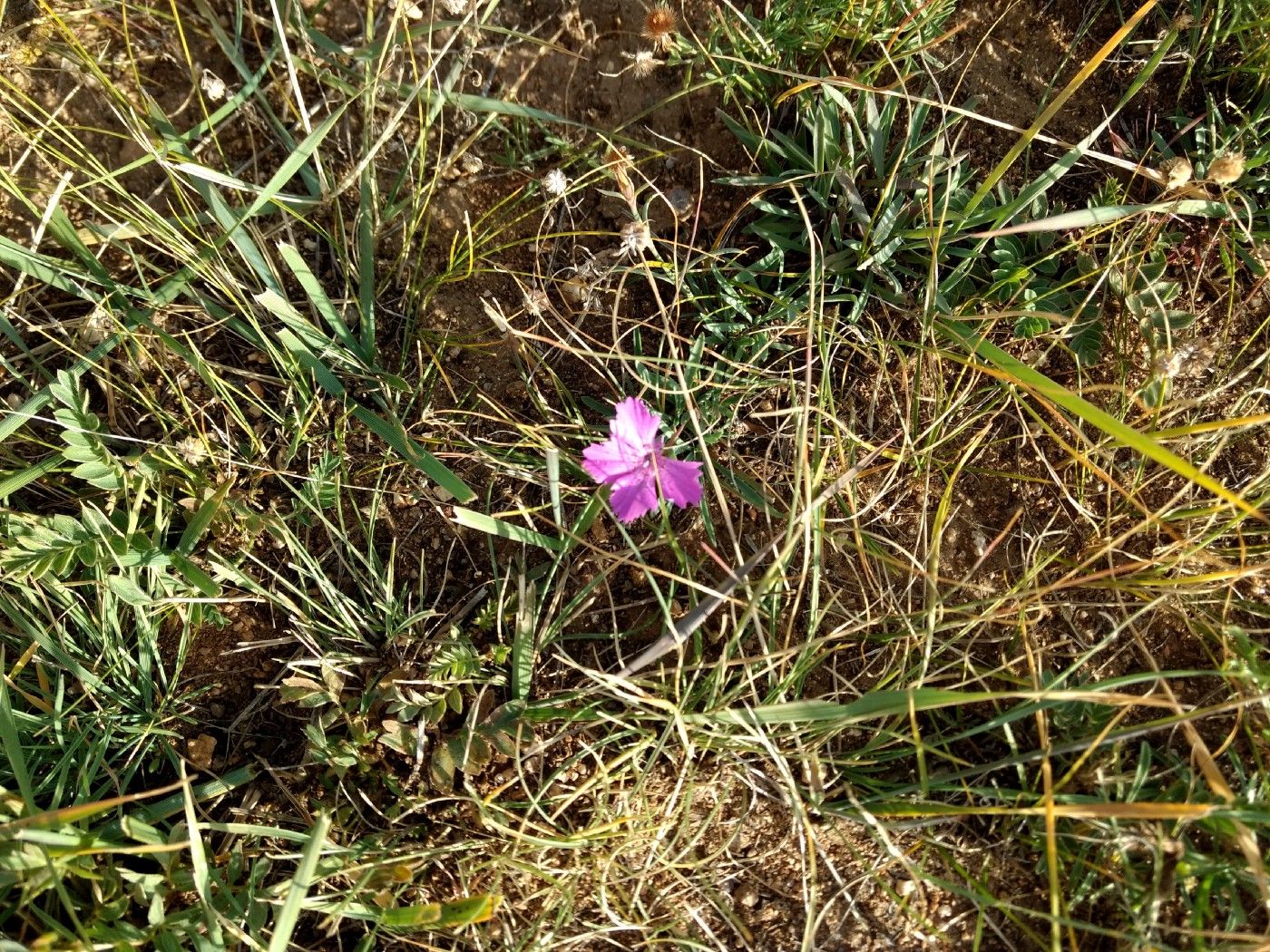
You can get drunk on it. Borodin clearly did. His symphonic poem is a passionate love affair with his country.
Borodin’s tunes captured a variety of emotions, but for me, the most evocative were those reminiscent of deepening and fading colors, rising winds, and yet another day on the glorious, vast steppes of Central Asia.
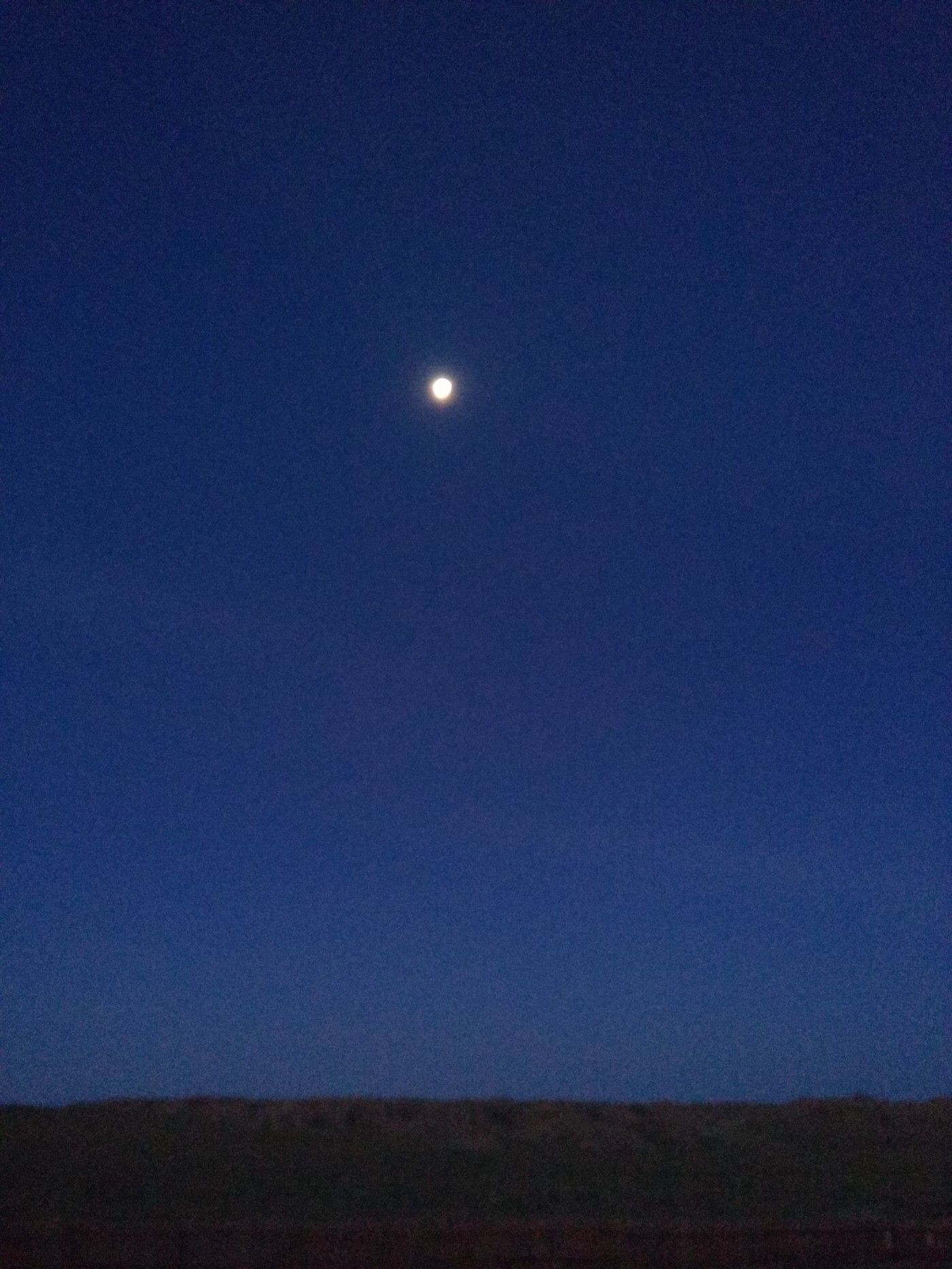
A tone poem about eternity, grandeur winds, and silence.
Comments powered by Talkyard.